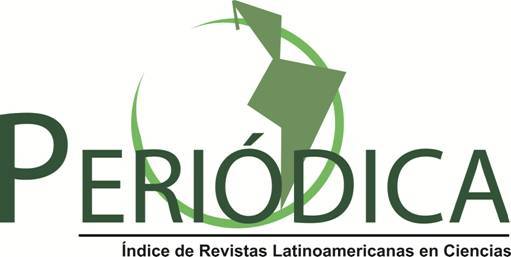Effect of propolis as an additive and antioxidant to broilers
DOI:
https://doi.org/10.18633/biotecnia.v22i3.971Keywords:
Natural additive, Antioxidant, Flavonoid, Lipid oxidationAbstract
Nowadays there are currently restrictions on the usage of synthetic additives in chicken production in several countries; an alternative is to use natural substances that could have different functions and effects on broiler. The objective of the research was to evaluate three levels of propolis (0, 100 and 200 mg per kg-1 of feed) in poultry for 42 days. Propolis at 200 mg kg-1 increased feed conversion (FC) in three-week old birds (P≤0.05), but at 100 mg kg-1 decreased weight gain (WG) in six-week old birds (P≤0.05). Propolis at both concentrations increased the amount of lymphocytes, heterophils and eosinophils in three-week old birds (P≤0.05) and monocytes in six-week old birds (P≤0.05). At 100 and 200 mg kg-1 of food the urea decreased in three-week old birds (P≤0.05), while at 200 mg kg-1 the cholesterol and triglyceride levels increased in six-week old birds (P≤0.05). In addition, at 200 mg propolis of kg-1 the oxidation of lipids in breast meat decreased (P≤0.05). The propolis added to the poultry feed did not increase the productive yield but the malondialdehyde present in breast meat decreased.
Downloads
References
Althnaian, T. 2014. Influence of dietary supplementation of Garden cress (Lepidium sativum L.) on liver histopathology and serum biochemistry in rats fed high cholesterol diet. Journal Advanced Veterinary Animal Research. 1: 216-23.
Apráez, T., Martínez, J. y Riascos, R. 2015. Efecto de la aclimatación prcoz sobre metabolitos sanguíneos en pollos de engorde. Ciencias Animales. 43: 1-8.
Ávila-Ramos, F., Pro-Martínez, A., Sosa-Montes, E., Cuca-García, J.M., Becerril-Pérez, C.M., Figueroa-Velasco, J.L. y Narciso-Gaytan, C. 2012. Effects of dietary oregano essential oil and vitamin E on the lipid oxidation stability of cooked chicken breast meat. Poultry Science. 91: 505 -511.
Ávila-Ramos, F., Pro-Martínez, A., Sosa-Montes, E., Narciso-Gaytan, C., Hernández-Cázarez, A.S., Cibrián-Tovar, J., Gallegos-Sánchez, J. y Rodríguez-Castillo, J.C. 2017. Oregano oil use in broiler diet increases accumulation of carvacrol and thymol in breast meat. Acta Universitaria. 27: 34-39.
Bonomi, A., Morletto, F. y Binachi, M. 1976. Propolis in feeds for laying hens. Avicoltura, 54: 43-54.
Castañon, J.I.R. 2007. History of the use of antibiotic as growth promoters in European poultry feeds. Poultry Science. 86: 2466-2471.
Cetin, E., Silici, S., Cetin, N. y Güclü, B.K. 2010. Effects of diets containing different concentrations of propolis on hematological and immunological variables in laying hens. Poultry Science. 89: 1703-1708.
Chang, H., Wang, Y., Yin, X., Liu, X. y Xuan, H. 2017. Ethanol extract of propolis and its constituent caffeic acid phenethyl ester inhibit breast cancer cells proliferation in inflammatory microenvironment by inhibiting TLR4 signal pathway and inducing apoptosis and autophagy. BMC Complementary Alternative Medicine. 17: 1-9.
Chang, Y., Marie-Pierre, L.M., Marielou, G., Chorfi, Y., Sureh, G., Rouissi, T., Kaur, A. B., Cote, C., Avalos, R.A. y Godbout, S. 2018. Use of antibiotics in broiler production: global impacts and alternatives. Animal Nutrition. 4: 170-178.
Denli, M., Cankaya, S., Silici, S., Okan, F. y Uloucak, A.N. 2005. Effect of dietary addition of Turkish propolis on the growth performance, carcass characteristics and serum variables of quail (Coturnix coturnix japonica). Asian-Australasian Journal Animal Sciences. 26: 848-584.
Eyng, C., Murakami, A.E., Santos, T.C., Silveira, T.G.V., Pedroso, R.B. y Lourenco, D.A.L. 2015. Immune responses in broiler chicks fed propolis extraction residue supplemented diets. Asian- Australasian Journal Animal Sciences. 28: 135-142.
Fischer, G., Conceicao, F.R., Leite, F.P., Dummer, L.A., Vargas, G.D., Hubner, S.O. Dellagostin, O.A., Paulino, N., Paulino, A.S. y Vidor, T. 2007. Immunomodulation produced by a green propolis extract on humoral and cellular responses of mice immunized with SuHV-1. Vaccine. 25: 1250-1256.
García-Amaro, E. 1973. Modificaciones al sistema de clasificación climática de Kóppen. Instituto de Geografía-UNAM (ed) 5a. Ed. Pp 74-75. México, D.F.
Gheisari, A., Shahrvand, S. y Landy, N. 2017. Effect of ethanolic extract of propolis as an alternative to antibiotics as a growth promoter on broiler performance, serum biochemistry, and immune responses. Veterinary World. 10: 249-254.
Haščik, P., Elimam, I.O., Kročko, M., Bobko, M., Kačaniova, M., Garlik, J., Šimko, M. y Saleh, A.A. 2015. The influence of propolis as supplement diet on broiler meat growth performance, carcass body weight, chemical composition and lipid oxidation stability. Acta Universitatis Agricultural et Silviculturae Mendelianae Brunensis. 63: 411-418.
Haščik, P., Trembecka, L., Bobko, M., Kačaniova, M., Čuboň, J., Kunova, S. y Bučko, O. 2016. Effect of diet supplemented with propolis extract and probiotic additives on performance, carcass characteristics and meat composition of broiler chickens. Potravinarstvo. 10: 223-231.
Huang, S., Zhang, C.P., Wang, K., Li, G. y Hu, F.L. 2014. Recent advances in the chemical composition of propolis. Molecules. 19: 19610-19632.
Kumazawa, S., Hamasaka, T. y Nakayama, T. 2004. Antioxidant activity of propolis of various geographic origins. Food Chemistry. 84: 329-339.
Laskar, R.A., Ismail, S.K., Roy, N. y Ara, B.N. 2010. Antioxidant activity of Indian propolis and its chemical constituents. Food Chemistry. 122: 233-237.
NRC. 1994. Nutrient Requirements of Poultry. 9th rev. ed. Natl. Acad. Press, Washington, DC.
Orsatti, C.L., Missima, F., Pagliarone, A.C., Bachiega, T.F., Bufalo, M.C., Araujo, J.P.Jr. y Sforcin, J.M. 2010. Propolis immunomodulatory action in vivo on Toll-like receptors 2 and 4 expression and on pro-inflammatory cytokines production in mice. Phytotherapy Research. 24: 1141-1146.
Pfalzgraf A, Frigg M. y Steinhart, H. 1995. α-Tocopherol contents and lipid oxidation in pork muscle and adipose tissue during storage. Journal of Agricultural and Food Chemistry. 43: 1339-1342.
Salvador-Avalos, J.M., Contreras-Bunuto, D., Prado-Rebolledo, O.F., Contreras, J.L., Macedo-Barragán, R.J., García - Márquez, L.J., Morales-Barrera, J.E. y Téllez - Isaías, G. 2012. Efecto de un probiotico en pollos de engorda. Abanico Veterinario. 2: 28-31.
Seven, I., Aksu, T. y Seven, T.P. 2010. The effects of propolis on biochemical parameters and activity of antioxidant enzymes in broilers exposed to lead-induced oxidative stress. Asian-Australasian Journal Animal Sciences. 23: 1482-1489.
Sforcin, J.M. y Bankova, V. 2011. Propolis: is there a potential for the development of new drugs?. Journal Ethnopharmacology. 133: 253-260.
Sforcin, J.M. 2007. Propolis and the immune system: a review. Journal Ethnopharmacology. 113: 1-14.
Shaddel-Tili, A., Eshratkhan, B., Kouzehgari, H. y Ghasemi- Sadabadi, M. 2017. The effect of different levels of propolis in diets on performance, gastrointestinal morphology and some blood parameters in broiler chickens. Journal of Veterinary Medicine B. 20: 215-224.
Tayeb, I.T. y Sulaiman, B.F. 2014. Effect of propolis supplementation on productive performance in local quail. Iran Journal of Applied Animal Science. 4: 621-627.
Theuretzbacher, U. 2013. Global antibacterial resistance: the never-ending story. Journal of Global Antimicrobial Resistance. 1: 63-69.
Zhang, Y., Han, I., Bridges, W.C. y Dawson, P.L. 2016. Peach skin powder inhibits oxidation in cooked turkey meat. Poultry Science. 95: 2435-2440.
Downloads
Published
How to Cite
Issue
Section
License
The journal Biotecnia is licensed under the Attribution-NonCommercial-ShareAlike 4.0 International (CC BY-NC-SA 4.0) license.







_(1)_(1).png)






_(2).jpg)




